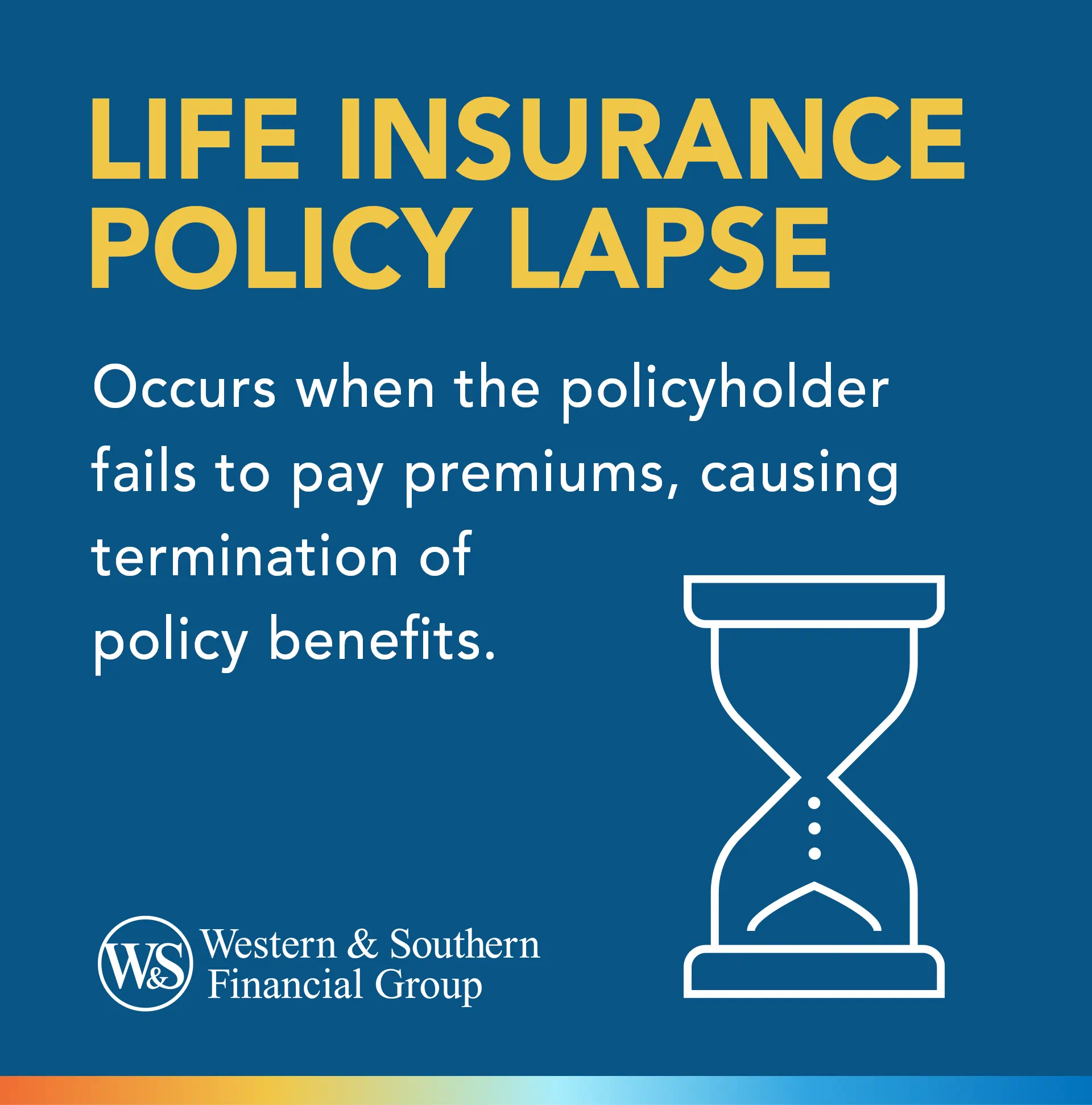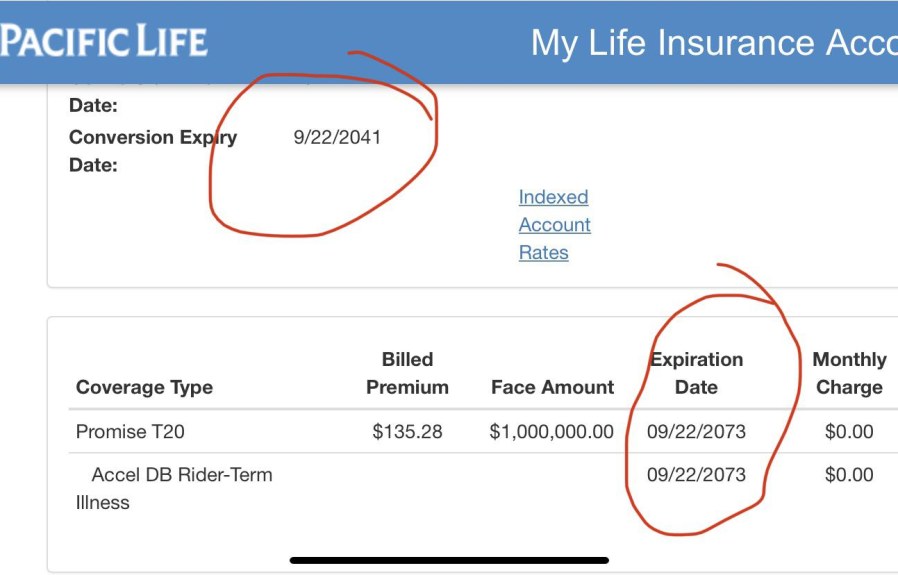Life insurance expires when the policyholder reaches the end of the policy term or stops paying premiums. Lifelong coverage is available through permanent life insurance policies.
Life insurance provides financial protection for individuals and their loved ones in the event of unexpected demise. It ensures that beneficiaries receive a sum of money, known as the death benefit, to cover various expenses and provide financial security. However, life insurance policies are not indefinite and come with an expiration date.
Understanding how life insurance expires is crucial for policyholders to make informed decisions regarding their coverage. We will explore the reasons behind life insurance expiring, the different types of policies, and what happens when a life insurance policy reaches the end of its term. By gaining insight into these aspects, individuals can make well-informed choices when it comes to their life insurance needs.
:max_bytes(150000):strip_icc()/cash-value-life-insurance.asp-final-642f8f39dafe49b9bed6310edb61d726.jpg)
Credit: http://www.investopedia.com
Life Insurance Expiry
Life insurance expiry is a significant aspect to consider when protecting your loved ones’ financial future. Understand the process of how life insurance expires, the factors that influence it, and the impact of policy lapses.
Determining Factors
Life insurance expiry can be influenced by various factors:
- Policy Term Length
- Premium Payments
- Policy Type
- Age and Health of the Insured
- Insurance Company Policies
Impact Of Policy Lapse
Allowing a policy to lapse can have dire consequences:
- Loss of Coverage
- No Payouts to Beneficiaries
- Potential Reinstatement Challenges
- Increased Premiums for New Policy
Consequences Of Lapse
Life insurance to expire can lead to consequences such as coverage loss and policy abandonment. Understanding how a policy lapses is crucial to ensure financial protection remains intact. Missing premium payments can result in policy termination, leaving loved ones vulnerable.
Loss Of Coverage
One of the most significant consequences of a life insurance policy expiring is the loss of coverage. When a policy lapses, it means that the insurance company no longer provides financial protection in the event of the insured person’s death. This can leave loved ones vulnerable and unprotected, severely impacting their financial well-being.
Without life insurance coverage, families may struggle to replace the income of the deceased, pay for funeral costs, or cover outstanding debts. Funeral expenses alone can be a considerable burden, often exceeding several thousand dollars. Additionally, the loss of income can result in financial hardships, especially if the insured was the primary breadwinner in the family.
Financial Implications
The lapse of a life insurance policy can have severe financial implications. When a policy is allowed to expire, all the premiums paid by the policyholder are essentially wasted. This can be a significant loss, particularly if the policy remained in force for a long time.
Furthermore, if the insured person’s health has deteriorated since the policy was purchased, it may be challenging to obtain a new life insurance policy at an affordable rate or even at all. Age and health conditions can significantly impact premium costs, and in some cases, individuals may be deemed uninsurable. This can leave them without any option to regain the financial protection provided by life insurance.
Additionally, other financial plans that were built upon the expectation of life insurance coverage may need to be reevaluated. For example, if the policyholder relied on the death benefit to pay off a mortgage or provide for a child’s education, the lapse of the policy can disrupt these plans, creating a strain on the family’s financial stability.
It is crucial for individuals to understand the potential consequences of allowing a life insurance policy to lapse. With the loss of coverage and significant financial implications, it is essential to prioritize keeping the policy in force or finding suitable alternative options to protect loved ones and safeguard against unforeseen circumstances.
Renewal Options
Renewal options for life insurance policies provide policyholders with choices when their current policy is expiring. Understanding these options is essential to ensure adequate coverage is maintained. Here are some common renewal options for life insurance policies:
Grace Period
A grace period is a period after the premium due date during which the policyholder can pay the premium without losing coverage. The length of the grace period varies, typically ranging from 30 to 60 days. Policyholders should make the payment within this period to avoid policy lapse.
Policy Conversion
Policy conversion allows policyholders to convert their current life insurance policy into a new policy without undergoing a medical exam. This option can be beneficial if the insured’s needs have changed and they require a different type of coverage. Conversion options may vary depending on the insurance provider and the policy type.
:max_bytes(150000):strip_icc()/Investopedia-terms-termlife-6451fde927474d4f8a81a5681efd393f.jpg)
Credit: http://www.investopedia.com
Steps To Take Before Expiry
Life insurance is a valuable financial asset that provides protection and peace of mind to you and your loved ones. However, like all good things, life insurance policies also come with an expiration date. It’s essential to take proactive steps before your policy expires to ensure that you and your beneficiaries continue to receive the intended benefits.
Review Policy Terms
Before your life insurance policy expires, it’s crucial to thoroughly review the policy terms and conditions. Pay close attention to the expiration date, the coverage amount, and any potential renewal options. Understand the terms related to the policy’s cash value, surrender value, and any potential penalties for non-renewal or missed premium payments.
Contact Insurance Provider
As the expiry date of your life insurance policy approaches, it’s imperative to get in touch with your insurance provider to discuss your options. Whether you wish to renew the policy, explore alternative coverage options, or simply understand the implications of the policy’s expiration, speaking with your insurance provider can provide valuable insights and clarity.
Understanding Policy Endorsements
Policy endorsements play a crucial role in determining the expiration of your life insurance policy. These endorsements are changes made to your policy that modify the terms, conditions, or coverage of your insurance. Understanding the different types of endorsements and their effects on policy expiry will help you make informed decisions about your life insurance coverage.
Types Of Endorsements
There are several types of endorsements that can be added to your life insurance policy:
- Beneficiary endorsement: This endorsement allows you to add or change the beneficiary of your policy.
- Nominee endorsement: With this endorsement, you can designate a nominee who will receive the policy benefits in the event of your death.
- Policy term endorsement: This endorsement alters the duration of your policy, extending or shortening its term.
- Rider endorsement: Riders are additional coverages that can be attached to your policy, such as a disability or critical illness rider.
Each endorsement serves a specific purpose, enabling you to customize your policy according to your changing needs and circumstances.
Effects On Policy Expiry
Endorsements can have a direct impact on the expiry of your life insurance policy. Depending on the endorsement, it may result in:
- Policy extension: Certain endorsements, such as the policy term endorsement, can extend the expiry date of your policy, providing you with continued coverage.
- Policy cancellation: In some cases, endorsements may lead to policy cancellation if they violate the terms and conditions set by the insurance provider.
- Changes in coverage: Endorsements can modify the coverage offered by your policy, either enhancing or limiting the benefits provided.
It is important to review and understand the impact of any endorsements on your policy expiry, ensuring that you maintain adequate coverage for your needs.
Keep in mind that policy endorsements may have specific conditions and restrictions. It is advisable to consult with your insurance provider or agent to fully comprehend the implications of any endorsements on your life insurance policy.
Planning For Life After Expiry
Life insurance expiry is a crucial aspect to consider. When the policy term ends, planning ahead is vital to secure your future financially.
Exploring New Coverage
- Seeking new coverage post-expiry is essential for ongoing protection.
- Research various options to understand the best fit for your needs.
- Contact insurers for updated quotes to compare and make an informed decision.
Financial Planning
- Review your financial situation regularly for a smooth transition after expiry.
- Create a budget to allocate funds towards new insurance premiums.
- Consult with a financial advisor to strategize long-term financial goals.

Credit: http://www.westernsouthern.com
Frequently Asked Questions For How Does Life Insurance Expire
How Does Life Insurance Expire?
Life insurance policies usually expire at a certain age, usually around 80-100 years old, depending on the policy. If the policyholder outlives the term, the coverage ends. Permanent policies, like whole life insurance, provide lifetime coverage.
What Happens When Life Insurance Expires?
When a life insurance policy expires, coverage ends, and the policyholder no longer receives death benefits. It’s essential to review options before expiration, such as renewing the policy, converting to a permanent plan, or seeking a new policy.
Can Life Insurance Expire Before Death?
Yes, term life insurance can expire before death if the policy term ends and the policyholder outlives it. This means no death benefits are paid out. However, some policies offer options to convert to permanent coverage to avoid expiration.
Conclusion
Understanding how life insurance expires is crucial for ensuring financial security and peace of mind. By recognizing the different expiration scenarios such as policy term limits or non-payment of premiums, individuals can take proactive steps to avoid losing their coverage.
Regular review of policy terms and engaging with insurance professionals can help in making informed decisions regarding life insurance. Ultimately, maintaining an active policy that aligns with your changing needs is the key to ensuring continuous protection for your loved ones.
{ “@context”: “https://schema.org”, “@type”: “FAQPage”, “mainEntity”: [ { “@type”: “Question”, “name”: “How does life insurance expire?”, “acceptedAnswer”: { “@type”: “Answer”, “text”: “Life insurance policies usually expire at a certain age, usually around 80-100 years old, depending on the policy. If the policyholder outlives the term, the coverage ends. Permanent policies, like whole life insurance, provide lifetime coverage.” } } , { “@type”: “Question”, “name”: “What happens when life insurance expires?”, “acceptedAnswer”: { “@type”: “Answer”, “text”: “When a life insurance policy expires, coverage ends, and the policyholder no longer receives death benefits. It’s essential to review options before expiration, such as renewing the policy, converting to a permanent plan, or seeking a new policy.” } } , { “@type”: “Question”, “name”: “Can life insurance expire before death?”, “acceptedAnswer”: { “@type”: “Answer”, “text”: “Yes, term life insurance can expire before death if the policy term ends and the policyholder outlives it. This means no death benefits are paid out. However, some policies offer options to convert to permanent coverage to avoid expiration.” } } ] }


Leave a comment